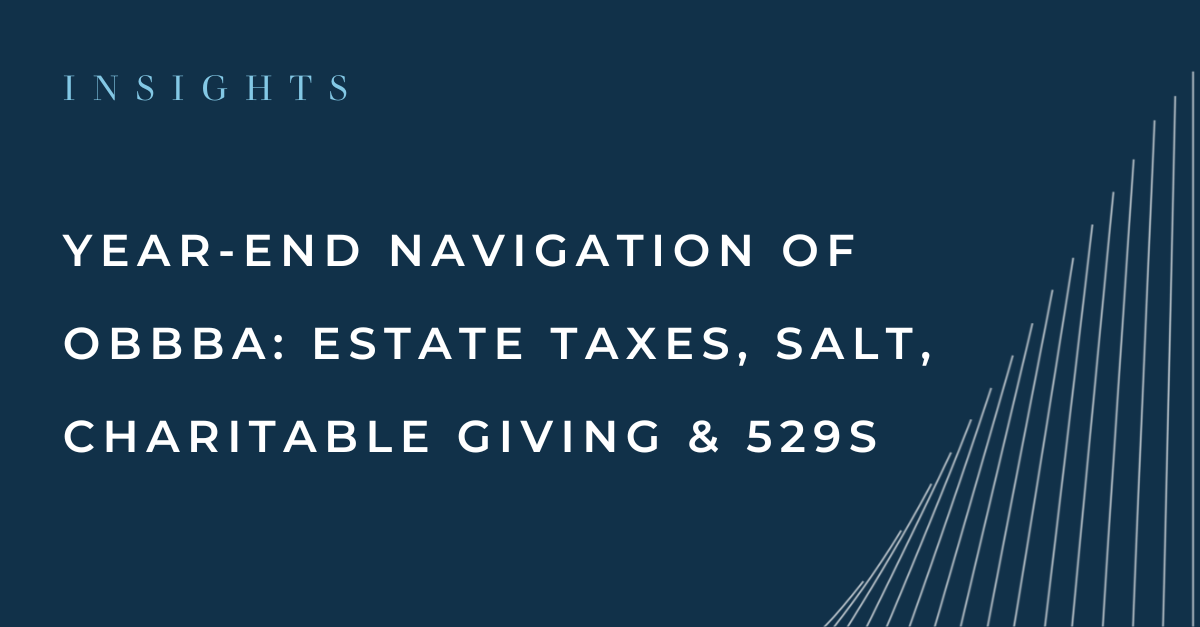Estate Planning & Trust Administration
Built on Trust to Bring Clarity to the Complex.
Our Approach
Each person’s circumstances, values, and vision for the future are deeply individual—so every estate plan we create is as distinct as the client behind it. Drawing on decades of experience, we blend creative problem-solving with the efficiency our clients expect, handling both domestic and cross-border planning to bring clarity to the complex.
At Harrison LLP, we enjoy long-term relationships with our clients and their families, serving as trusted advisors to help build, protect, and pass on wealth. Our areas of expertise include sophisticated tax planning and guiding the next generation to be stewards of the family legacy. We pride ourselves on our ability to develop bespoke estate plans through straightforward, practical advice.
Estate planning is a complex web encompassing the laws of estates, trusts, probate, taxation, real estate, securities, intellectual property, privacy, and asset protection. We navigate through the complexity to deliver simplicity and clarity. By marrying technical excellence with exceptional client service, we deliver more than just documents. We ensure your estate plan helps your values live on for generations to come.

"Their attention to detail and personalized relationship with clients sets them apart.
Their communication with advisers and clients is as good as their technical proficiency, which brings value."
"The team understands complexity."
"The Harrison team stands out for its ability to efficiently collaborate across the organization where a specialist is required."
Chambers High Net Worth Guide, 2025
Harrison LLP Named in 2026 edition of Best Law Firms®
The firm was recognized again in Trust & Estates Law and Tax Law, along with numerous other areas.

Chambers Global Guide 2025 Recognizes Dyke M. Arboneaux
This marks her 18th consecutive year in Chambers Global Guide as an Expert Based Abroad for Tax (USA).

Advising Families with Special Needs Beneficiaries
ACTEC Fellow and Atlanta Partner Kristen M. Lewis shares how this type of planning differs from traditional estate planning.

Chambers High Net Worth Guide 2025 Ranks 10 Partners
In addition to the firm’s Private Wealth Law practice rankings in Missouri, Georgia, Illinois, and Washington, D.C., ten partners were individually ranked.

Ethical Wills – Antidote to the Rich Fool
ACTEC Fellow and Washington, DC Partner Sarah Moore Johnson walks through considerations for creating an Ethical Will.
.jpeg)
Our Work
Will and Trust Planning/Drafting
Irrevocable Trust and Gift Planning for Complex Family Needs, Tax Planning, and Spousal Protection
Cross-Border Estate and Trust Planning
We advise fiduciaries, international families, and family offices on the international aspects of U.S. tax matters and international asset structuring and succession planning, including:
- Planning for U.S. beneficiaries of foreign trusts;
- Planning for exposure to multiple tax jurisdictions;
- Pre-immigration tax planning for foreign individuals who plan to become U.S. tax residents;
- Expatriation from the United States;
- FATCA reporting and CRS compliance matters; and
- General international estate structuring and estate administration matters.
Gift and Estate Tax Return Preparation
Probate Administration
Trust Administration
Postmortem Tax Strategies
Family Legacy Planning & Stewardship
Special Needs Planning
We work to develop comprehensive, holistic estate and life-care planning that integrates traditional estate planning tools with the use of discretionary and special needs trusts, letters of intent, and future-care planning. We have the experience to:
- Counsel families through the labyrinth of federal and state government benefits and design plans that preserve eligibility.;
- Advise across the spectrum of trust and estate law, trust income tax issues and guardianships;
- Collaborate with the family’s financial planner, insurance advisor, and introduce care-managers and professional trustees, when necessary, to ensure that the individual with a disability has a system of support and oversight beyond basic government benefits.
Counseling Professional and Lay Fiduciaries in the Administration of Trusts, Decedents’ Estates, and Guardianship Estates
Life Insurance Planning
Private Trust Companies
Family Office Planning
Accountings/Beneficiary Reporting
Related News & Insights

Harrison LLP Promotes Four Attorneys to Partner


Harrison LLP Recognized in 2026 Edition of Best Law Firms in America
Meet Our Attorneys | Estate Planning & Trust Administration
.png)
Jacque Albus
.png)
Dyke M. Arboneaux
.png)
Sarah M. Barnes

Jeffrey M. Bergman
.png)
Susan G. Berman

Michael J. Bland
.png)
S. Dresden Brunner

Patrick J. Bushell
.png)
Timothy G. Carroll
.png)
Kimberly E. Civins

Catherine M. Colombo

James R. Cummins

Stephen B. Daiker
.png)
Steven M. Dawson

Beth L. Fox

Elizabeth A. Garlovsky

Brad S. Gerber
.png)
Linsey A. Glosier
.png)
Michael A. Haber

Rebecca J. Haines
.png)
Hayley Strong Hall
.png)
Thomas G. Hamill
.png)
Louis S. Harrison
.png)
Keith Herman
.png)
Sarah Moore Johnson

Brian K. Jones
.png)
Stephanie Moll Kriegel
.png)
Emily J. Kuo

Lana Hompluem Lane
.png)
Kristen M. Lewis

Rita E. Luce

Jennifer Ruane Lynn
.png)
Matthew J. Madsen
.png)
Dean C. Marcus

Kim C. Martin

Meredith Martin
.png)
Meryl M. Mathews

Shawn M. McCullough

Tiffany N. McKenzie
.png)
Madeleine J. Minton
.png)
Patrick F. Mize
.png)
Margaret A. Nagela
-1.png)
Robert T. Napier
.png)
David W. Nyberg
.png)
Jason S. Ornduff
.png)
Elizabeth Pack

Alan G. Palmer
.png)
Natalie M. Perry
.png)
Jarriot L. Rook
.png)
Elizabeth S. Schaub

Jennifer P. Seksaria
.png)
Alan M. Singer

Greta Staat
.png)
Lawrence G. Staat

Laura L. Stone

Chelsea J. Suttmann
.png)
Reynard L. Tanig

Samantha E. Weissbluth

Samantha Beyda
.png)
Ashley N. Buda

Megan Buggy

Victoria L. Cejka

Tracy M. Costanzo

Daniel Dovev
.png)
Jad G. Elchahal
.png)
Daphne L. Fernandez

Kimberly N. Harris-Browns
.png)
Jefferson C. Hunt
.png)
Megan L. Jerome

Natasha D. McFarland

Tamar C. Rosenfeld

Jasmin N. Severino

Trevor A. Thornton
.png)
Emma H. Barry
.png)
Lauren Bernay

Lawrence Brody

Erin C. Galper

J. Michael Harrison

Aaron Hegji
.png)
Alex Paul

Melissa G. Sprinkle
.png)



